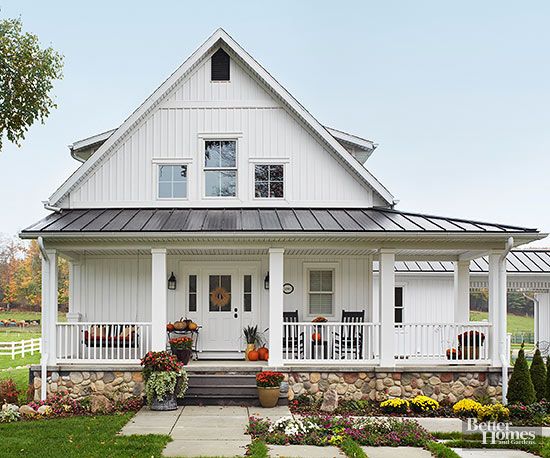
Work is coming home. More people work from home than has been the case in a long, long time. But the homes they work in, generally speaking, weren’t built to house much work besides cooking up prepackaged meals from the supermarket.
Now, if we built our homes to work, how would they be different?
I’ve been thinking about this for a while, and not just recreationally. I’m planning to build a house for my family in the not too distant future. (I mean actually doing it myself, not contracting it out.) And I plan to use that experience to build houses for other people.
In the next few weeks I intend to use Paterfamilias Today as a notepad for my inchoate thoughts on the subject. Feel free to join me by adding your marginal notes in the comments section.
First of all, let’s review what modern homes are built for.
As far as I can tell, they’re meant to be recreation centers and status symbols. They’re places we retreat to when the workday is done. And their scale and their amenities are used to signal to our neighbors the value the market economy places upon our work.
If we re-centered work and brought it home, those matters would be marginalized.
Historically this how farmhouses and the houses of tradesmen functioned. In the old days everyone worked from home, and the dwellings they built reflected this. For farmers the house was usually situated so as to make access to the fields convenient. And they were surrounded by out-buildings like barns and sheds that were a short walk from the house. The house itself was usually a simple structure, and landscaping–shrubs, flowers, lawns, etc. were kept to a minimum or just didn’t exist. Who wants to trim shrubs when there is hay to cut?
Shop keepers similarly had shops out back, or down stairs, and they often allocated space for a significant garden.
While there were dedicated spaces for work in these houses, life was also ordered by time. Since the work was always at hand, rest and recreation occurred in time set aside for them–the end of the day, the season of the year, and so on. This meant that working spaces often served as recreation spaces. But work usually came first.
This allocation of time and space for work and rest was ordered by the home economy, i.e. the law of the house. A glance at the etymology of the word economy reveals that this is what an economy is. It is a compound word in the original Greek–oikos for house and nomos for law.
Subsistence Economy and Market Economy
I think it is helpful to look at the homes economy from two angles. There is an internal order, and then there is a larger order that this fits into. The internal order is a subsistence economy–what a household does for itself. And the larger order it fits into is relied upon for what it can’t or shouldn’t do for itself.
Self-sufficiency is a good thing, to a degree. But it can be taken too far, to the impoverishment of a household and the larger community. But that’s not the problem most of us face. Most of us we are far too dependent upon things outside of our control. And this dependency has enervated us, and paradoxically, has undermined civic virtue.
As I noted earlier, more and more people are working from home, providing services and even goods to the market economy. But this is still a small minority. But I think to a degree everyone can become more self-sufficient by developing a household subsistence economy.
In order to do that you need to jettison one of the sacred cows of the market economy–efficiency. (Go ahead, put the cow on the catapult and launch it!)
While efficiency can enrich us in many ways, we tend to forget about the ways it impoverishes us. Efficiency encourages specialization, what we call the division of labor. But one obvious price we pay with specialization is general competency. The specialist is passive. And that leads to feelings of anxiety and victimization. Another way specialization impoverishes us is by alienation. Marx made a lot of this. And while I’m not a Marxist, it is almost impossible to deny that the typical cubicle jockey doesn’t really identify with the output of his company.
So, getting back to building a new sort of old fashioned house. Let’s begin with two areas where most people can build subsistence right away: food and social services.
Next time I’ll share my thoughts on how the houses we build would be different if we grew and raised more of our own food.
____
If you’d like to know more about my latest book before shelling out your hard-earned money for it, Wipf and Stock, the publisher of my book, Man of the House, has given me permission to share a little sample of the book with you. The hope, of course, is you will like it enough to purchase a copy. Enjoy!.
Click here to download the book excerpt as a PDF: Man of the House_Excerpt












